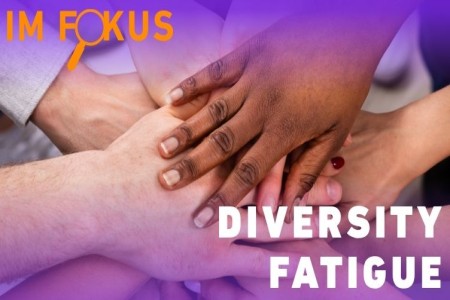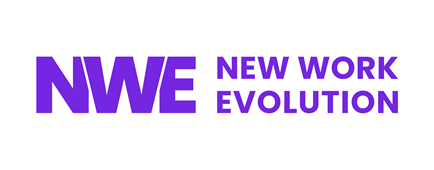Between expectation and reality: When diversity becomes exhausting

The fact that diversity, equity, and inclusion (DEI) are no longer niche topics is evident, among other things, in the increasing social and corporate relevance of diversity. And yet, in many companies, enthusiasm for diversity issues is increasingly giving way to a certain fatigue. The term “diversity fatigue” describes precisely this state: when employees and managers become tired of diversity and inclusion efforts. But how does this fatigue arise when current figures, for example from the Factbook Diversity 2024 of the Diversity Charter, have long proven that companies that promote DEI benefit from greater innovative strength and better problem-solving skills and are therefore generally more successful?
Lack of commitment and barely noticeable changes
When companies communicate diversity goals, people expect to see visible progress. However, if these remain inconsequential, barely noticeable, or are perceived as mere symbolic politics or a mandatory program, disinterest arises. The same applies if DEI is not pursued through a strategic approach but only through individual measures, if diversity measures are introduced too quickly and without sufficient planning, if managers do not actively promote the issue, or if there is insufficient data to measure progress. In addition, in times of multiple crises such as wars and environmental disasters, other issues take center stage and DEI recedes into the background. Unfortunately, this is currently evident in political developments that are influencing internal DEI strategies within companies. Led by prominent voices such as Donald Trump and Elon Musk, a strong counter-movement is currently forming in the US, for example, which publicly discredits DEI as “wokeness.” According to an analysis by Deutsche Welle, this attitude is increasingly influencing German companies with a strong market presence in the US, as companies are scaling back their diversity efforts in order to avoid political controversy or economic risks.
What companies should do to avoid diversity fatigue
There are several key actions that can be taken. First, DEI should not be viewed as a one-off, isolated project, but rather integrated into a company's overall strategy. Space must be created for open exchange, critical perspectives, and continuous learning, and there needs to be openness to thinking about DEI as a process—with repetitions, course corrections, and setbacks. On the other hand, managers should also take responsibility, not as a duty, but out of conviction. According to the European DE&I Index Study, only one-third of managers belong to underrepresented groups, even though diversity in leadership has been shown to have a positive effect on corporate culture and DEI efforts. Furthermore, measurability must be created in order to assess progress and impact and to communicate successes, but also gaps, transparently.
Diversity fatigue as a warning sign for poorly integrated initiatives
Companies also have a social responsibility, and in an increasingly complex and heterogeneous society, it is essential that companies also become more complex and heterogeneous. However, if companies do not promote diversity in a convincing and credible manner, this can lead to frustration or fatigue. But the good news is that this diversity fatigue is not the end of the road. Rather, it indicates that initiatives are poorly embedded and implemented. And that can be addressed.
Sources:
https://www.ey.com/de_de/insights/diversity-inclusiveness/dei-im-europavergleich-bilanz-eines-trends
https://www.dw.com/en/how-trumps-anti-woke-push-affects-german-firms-dei-policy/a-72676465
https://cdn.prod.website-files.com/67b322b4f0736791cf0402d6/67e3ffe24d91d2e7f48762e9_Factbook_DE_2024.pdf


